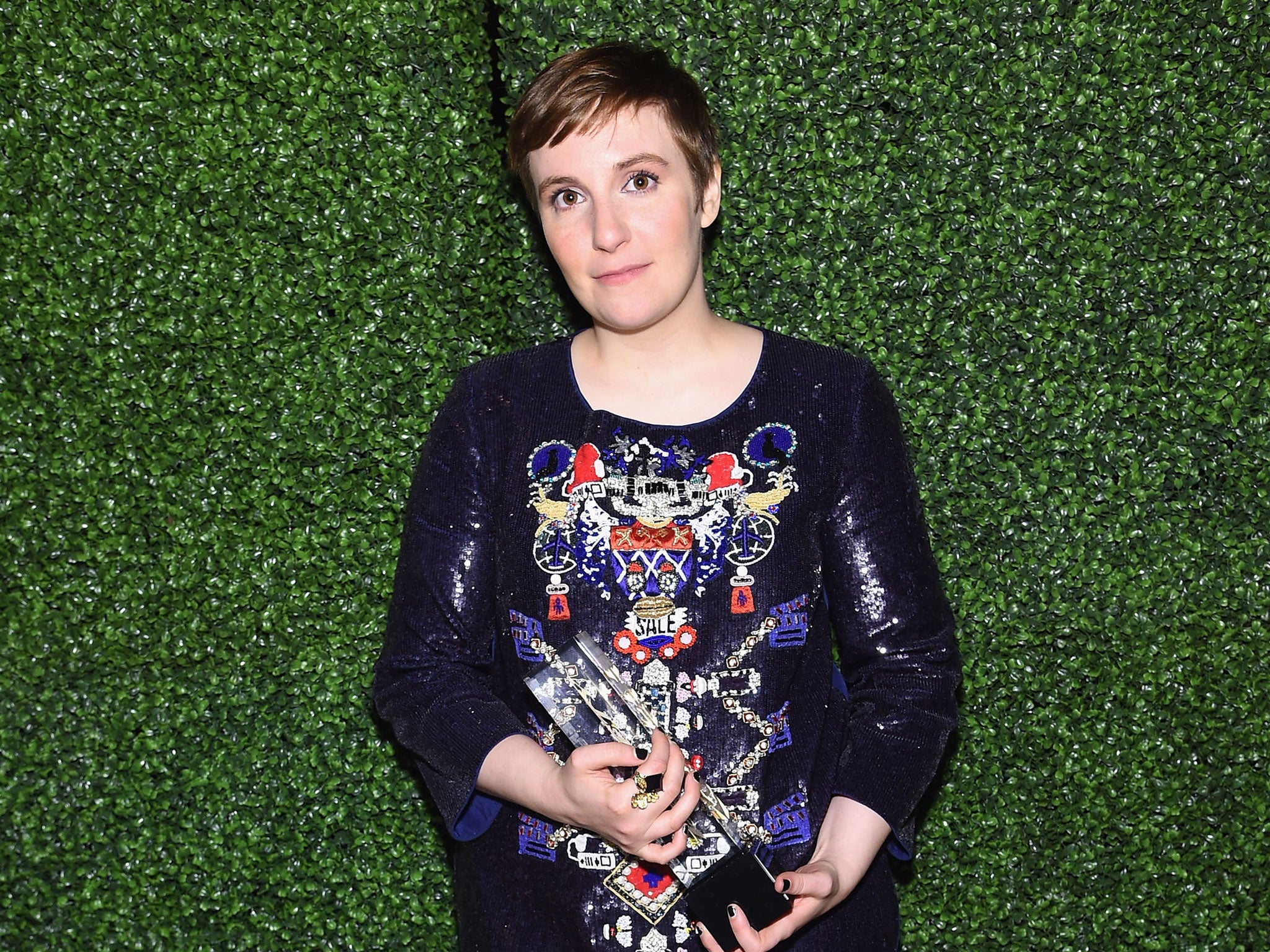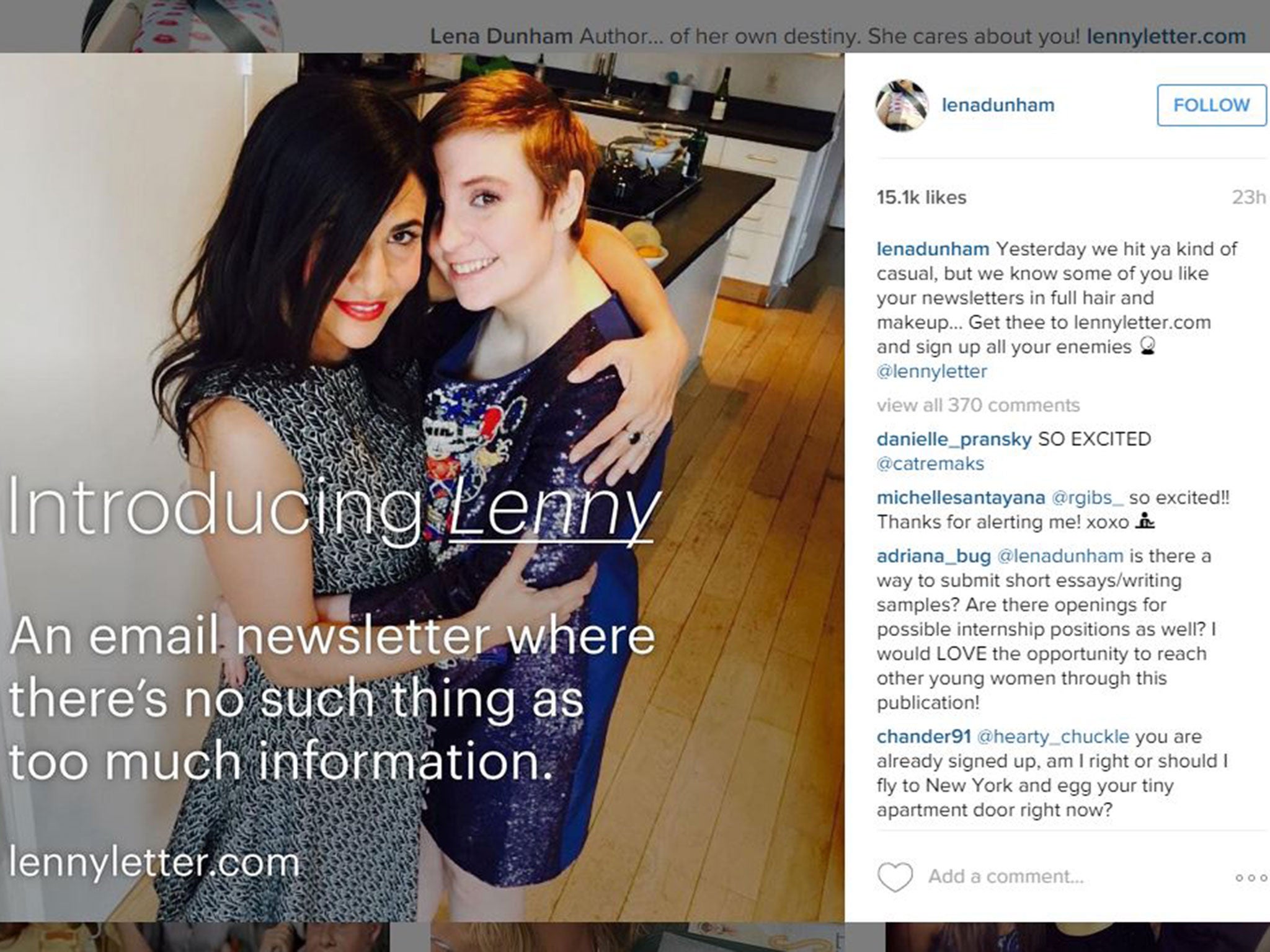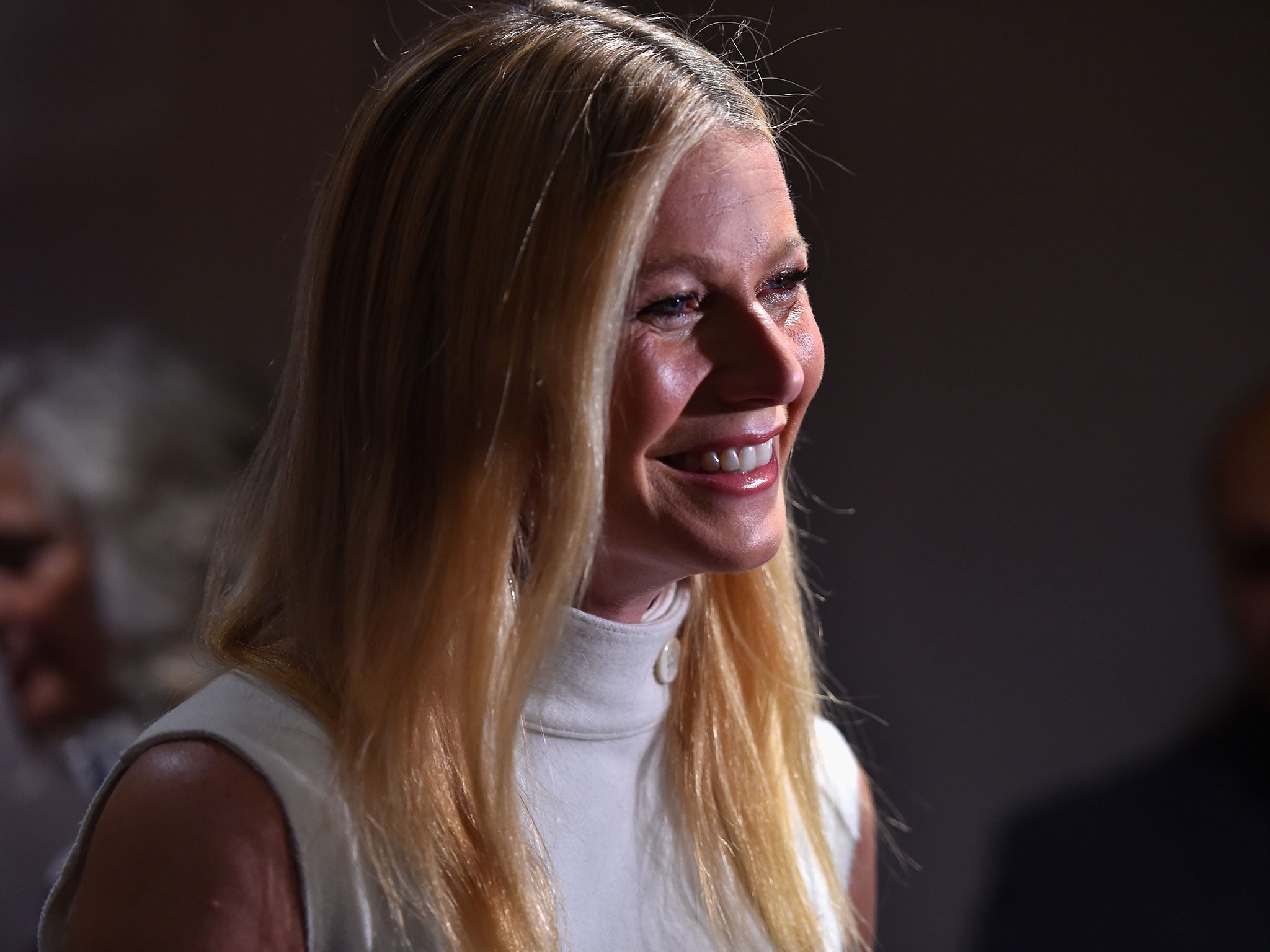Lena Dunham launches feminist e-newsletter called 'Lenny' for fellow-millenials
Gillian Orr explores why old-fashioned emails are a hit with modern women

Your support helps us to tell the story
From reproductive rights to climate change to Big Tech, The Independent is on the ground when the story is developing. Whether it's investigating the financials of Elon Musk's pro-Trump PAC or producing our latest documentary, 'The A Word', which shines a light on the American women fighting for reproductive rights, we know how important it is to parse out the facts from the messaging.
At such a critical moment in US history, we need reporters on the ground. Your donation allows us to keep sending journalists to speak to both sides of the story.
The Independent is trusted by Americans across the entire political spectrum. And unlike many other quality news outlets, we choose not to lock Americans out of our reporting and analysis with paywalls. We believe quality journalism should be available to everyone, paid for by those who can afford it.
Your support makes all the difference.She's already dished out more advice than Dear Deidre but Lena Dunham seems to think that she has plenty more pearls of wisdom to dispatch. It was announced this week that the actress and writer, together with Girls' executive producer Jenni Konner, will this autumn launch Lenny, an "email newsletter where there's no such thing as too much information".
That might sound a bit scary but, probed further, the pair insisted that they merely planned to "yell at you about your finances, help you choose a bathing suit, lamp, president… AND tell you what to do if you need an abortion", making it a one-stop shop for all your interior and family-planning needs.
They were both quick to claim that the newsletter was not intended to be "the anti-Goop", referring to Gwyneth Paltrow's much-derided newsletter, which offers tips for the best six-star hotels in Beijing, shows you how to steam your vagina, and (my favourite) insists that your kitchen isn't complete without four plain white bowls for £180.
Other celebrities who have decided to connect with fans via their inboxes include the performance artist, author and actor Miranda July, whose 2013 project We Think Alone offered up the personal email addresses of her famous friends with weekly themes such as "An Email You Decided Not to Send" and "An Email That Mentions Barack Obama". Rachel Zoe, the influential Los Angeles-based fashion stylist, connects with followers of her boho style with The Zoe Report, which isn't afraid to tackle the difficult questions such as "Is denim still as relevant as it once was?"
And it's easy to see why celebrities are attracted to this relic of a platform (at least by online standards).

"It's quite simply about control," suggests Mark Borkowski, a publicist and author. "This is a brand decision in terms of building greater authority and power for the star. They've recognised the short form of talking directly to fans – Twitter and Vine – is not enough so there's a move back to long-form connection."
Still, it seems odd that the newsletter is having a moment. In an article in The New York Times last year, the late media critic David Carr observed that "email newsletters, an old-school artefact of the web that was supposed to die along with dial-up connections, are not only still around, but very much on the march". So what gives?
Rachel Sklar, a co-founder of TheLi.st, a newsletter for professional women who are "ambitious, accomplished and committed to helping each other rise", believes its popularity is simply because readers are tired of the online information overload, and appreciate having something trusted and finite come directly to them.
"As people who have worked in online digital media for a long time, we just really noticed how we were most likely to click on something or read something that came directly to us in our inbox. Go to where your readers are; go to their desktops and their pockets."

Indeed, the newsletter world is flourishing. TinyLetter, one of the most popular programmes for creating newsletters, has more than 100,000 users, who reach 9.3 million subscribers. There was a 15 per cent increase in the number of newsletters sent in the last 12 months.
And it's women in particular who are benefiting from being given a voice via newsletters.
"Women can curate this media, which means we're not dealing with the same narrow perspectives of white, straight men," Sklar says. "The reason someone like Lena Dunham and Jenni Konner looked at this space and said, 'We want in,' is because it's very clear that women are still wildly under-served and there's still plenty of room for smart, opinionated, sassy, funny, principled curation and original content."
So with newsletters fast becoming the most rewarding way for stars to connect with fans, expect half of Hollywood to be vying for your inbox soon.
Join our commenting forum
Join thought-provoking conversations, follow other Independent readers and see their replies
Comments